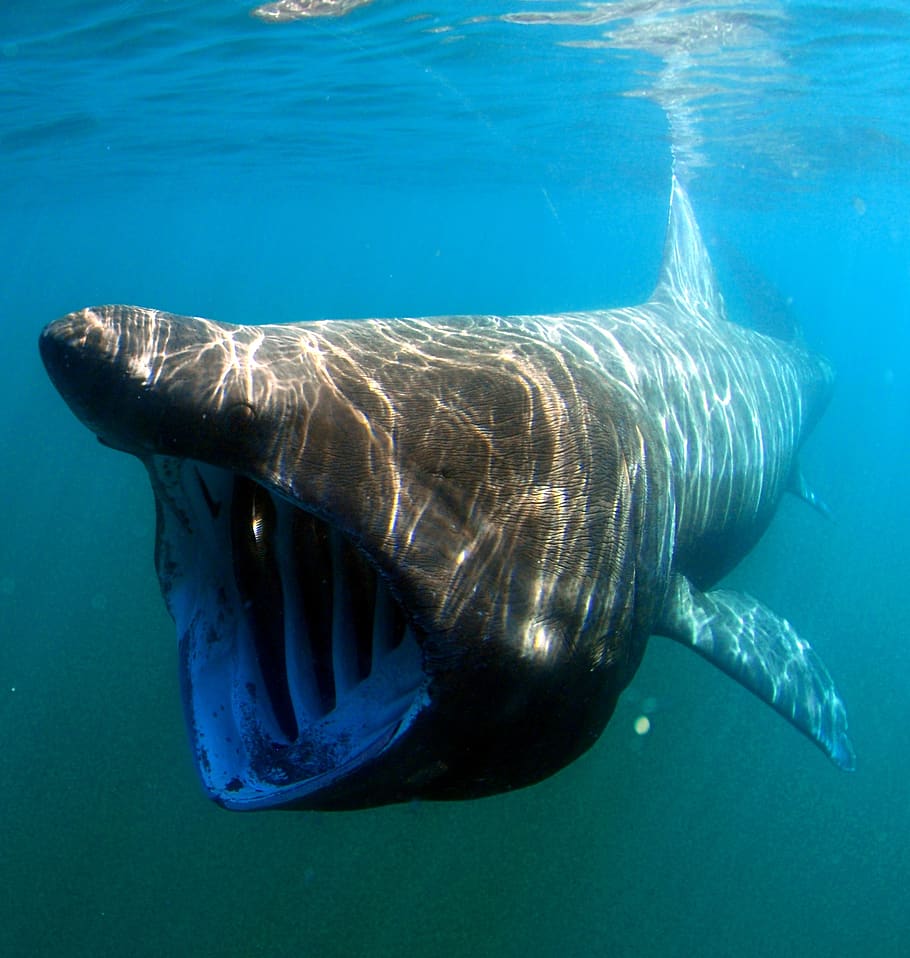Reaching up to 12m in length and 7 tonnes in weight, the Basking Shark is the second largest fish in the world. Large numbers are observed off the West Coast of Scotland between spring and summer, and thought to host key habitats for courtship and mating. They are typically seen swimming slowly with their enormous mouths filtering their diet of plankton, the dorsal fin and tip of the tail above the water. Their specially designed gill rakers filter plankton and can strain up to 2,000 tonnes of water per hour.
Action Needed
- Raise awareness of Basking Sharks, their location and behaviour, to reduce likelihood of accidental harm.
- Implement effective management measures throughout the network of Scottish Marine Protected Areas.
- Support additional research to further understand essential habitat, threats and behaviours.
- Advocate protection of Basking Shark in other countries.
- Ensure the Scottish Biodiversity Strategy is fully implemented.
Threats
Thought to live for at least 50 years, Basking Sharks are slow growing and late to reach maturity (20 years for females), making them highly vulnerable to overexploitation. The North East Atlantic population was heavily depleted by overfishing until the mid-1990s.
- By-catch and entanglement: Feeding passively at the surface, Basking Sharks can easily become tangled in fishing nets and ropes, and caught as by-catch.
- Boat-strike and harassment: Risk of propellor and boat strikes is common and disturbance at the surface may impact natural behaviours such as feeding, courting and mating.
- Microplastics: Feeding on zooplankton, microplastic pollution may also pose a threat.
MSP Nature Champion

Stuart McMillan
Member for: Greenock and Inverclyde
Region: West of Scotland
Party: Scottish National Party



